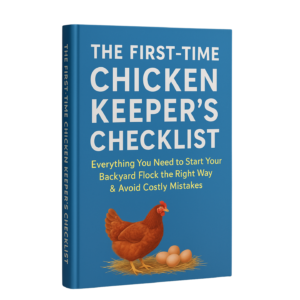Personal finance Freedom – Amazing 7 tips
Budgeting and personal finance are essential components of money management and obtaining financial security.
How to save Personal finance and budgeting

- Budgeting and personal finance are essential components of money management and obtaining financial security. Having a clear grasp of your finances and a plan in place can help you achieve your goals, regardless of whether you are attempting to pay off debt, save for a large purchase, or simply strive to build wealth.
- Create a budget first: Determine your monthly revenue, keep track of your expenses, and find out where your money is going. You might be shocked at how much money you are spending on luxuries like eating out or purchasing coffee. Making informed decisions about where to make cuts and where to direct your money will help you achieve your objectives.
- The next step is to look for ways to save money. This can be as easy as reducing your spending or finding ways to lower your expenditures. Think about haggling with your cable or internet provider, or looking for cheaper alternatives for items like cell phone plans or gym memberships.
- Create a plan for paying off whatever debt you may have, including credit card debt and college loans. Think about using the debt snowball or debt avalanche strategy to better organise your debt and pay it off.
- Consider making an emergency fund, retirement contributions, stock or mutual fund purchases as investments in your future. You will be more likely to achieve your financial objectives and give your money more time to grow if you start saving sooner.
Finally, develop a strategy and follow it: Having a plan in place and following it are essential whether you’re aiming to save money, eliminate debt, or amass riches. Regularly review your budget, make any adjustments, and rejoice when you succeed. You may achieve your financial objectives and safeguard your financial future with time, effort, and a dedication to sound financial practises.
More information on the subjects covered in the blog post on personal finances and budgeting may be found here:

- Making a Budget: Keeping track of your income and expenses will allow you to know where your money is going each month. Start by making a list of all of your sources of income and fixed expenses, such as your rent or mortgage payment, your car payment, and your utility bill. Then, make a list of your variable costs, such as meals out, groceries, and entertainment. To determine if you are spending more or less than you are making, deduct your expenses from your revenue.
- Spending Less: In order to save money, you must find strategies to reduce your spending. Simple examples of this include cooking meals at home rather than going out to eat and making coffee at home rather than buying it. You can also look for ways to lower your expenses, such as haggling with your cable or internet provider or locating more reasonably priced alternatives for items like cell phone plans or gym memberships.
- Debt repayment: Although debt might be a hardship, you can get back on track if you have a strategy in place. Think about using the debt snowball or debt avalanche strategy to better organise your debt and pay it off. Make a note of every debt you have, together with its interest rate and minimum payment. Next, choose your payment strategy and begin paying off each bill individually.
- Investing: Over time, investing can be a terrific method to accumulate wealth, but it’s vital to be aware of the hazards. A safety net in case of unforeseen expenses might be provided by creating an emergency fund. You might also think about buying stocks or mutual funds, contributing to a retirement account like a 401(k) or IRA, or both.
- Maintaining Consistency: Maintaining consistency is essential to reaching your financial objectives. Regularly review your budget, make any adjustments, and rejoice when you succeed. Though it could take some time, you can achieve your goals if you have patience, perseverance, and a dedication to developing sound financial practises.
In conclusion, managing your money and establishing financial stability require careful attention to personal finance and planning. You may achieve your financial goals and safeguard your financial future by making a budget, setting aside money, paying off debt, investing, and adhering to your plan.
Benefits of budgeting and personal finance:

A greater understanding of your financial status can be attained by making a budget and keeping track of your spending. This might assist you in reaching your financial objectives and in making wise financial management decisions.
- Stress reduction: For many people, financial stress is a key source of stress. You may lessen financial stress and feel more in control of your finances by creating a plan and following it.
- Increased Savings: You can boost your savings and amass wealth over time by reducing spending and channelling money toward your goals.
- Better Debt Management: By developing a strategy for debt repayment, you can put yourself on the path to financial stability and debt freedom.
- Increased Investment Opportunities: You can increase your wealth and achieve your financial objectives by investing your money.
- Improved Credit Score: You can raise your credit score by paying off debt and utilising credit responsibly, which can open up greater financial options and goods for you in the future.
- More Financial Security: You can boost your financial security and feel more assured about your financial future by having a clear grasp of your finances and a plan in place.
In conclusion, budgeting and personal finance have a variety of advantages that can help you better manage your money and achieve your financial objectives. You may ensure your financial future and have peace of mind by taking charge of your finances and making wise decisions.






